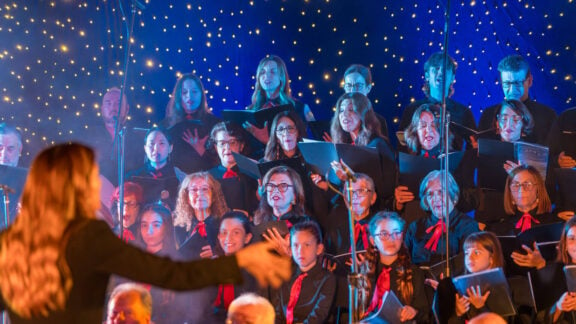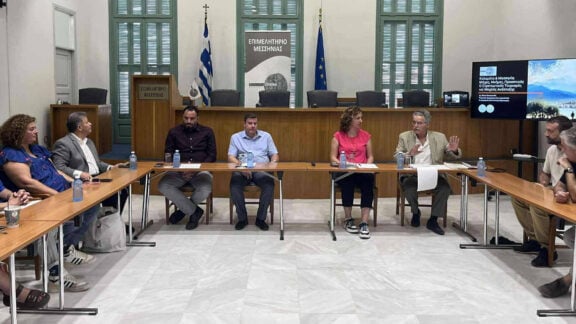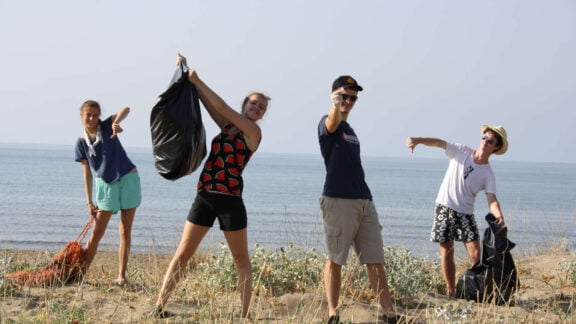Τhe Members of the Executive Committee of the Society for Hellenic Studies and Research (SHSR), are deeply concerned about the recent decision by Macquarie University to discontinue its Modern Greek program, alongside other languages such as Croatian, Italian, and Russian. This decision, effective from Semester 1, 2025, is an important reminder of the urgent need for joint efforts to maintain and promote the teaching of Modern Greek in Australia. Our Society continues to champion this cause, emphasising the critical role that language plays in preserving cultural heritage and promoting community cohesion.
Cultural Connection and Identity
Learning Modern Greek allows young Hellenic Australians to connect deeply with their heritage fostering a strong sense of identity and pride. Understanding the language of their ancestors helps them appreciate the rich history, traditions, and values embedded in Greek culture. This connection is essential for maintaining cultural continuity and enriching their lives.
Enhanced Cognitive Skills
Bilingualism is known to enhance cognitive abilities, such as problem solving, multitasking, and creativity. Learning Modern Greek stimulates intellectual growth, benefiting both children and adults. Studies have shown that bilingual individuals often perform better in tasks requiring attention-switching and conflict management. In addition, the knowledge of modern Greek help to understand English much better, as 25% of the English words derive from Greek terms. For children, learning Greek sharpens cognitive skills and improves academic performance. For adults, it keeps the mind agile and engaged, potentially delaying cognitive decline.
Career and Economic Opportunities
Proficiency in multiple languages opens up numerous career opportunities. In today’s globalised world, businesses and organizations value employees who can communicate in different languages and understand various cultures. Fluency in Modern Greek can be a significant advantage in fields such as international business, tourism, and diplomacy. It allows for better engagement with Greek-speaking markets and communities, enhancing career prospects and contributing to economic growth.
Preservation of Heritage Languages
Maintaining and promoting community languages like Modern Greek is crucial in a multicultural society. It ensures that Australia’s linguistic diversity is preserved and celebrated. Community languages are an integral part of Australia’s cultural landscape. By learning and using Greek, individuals contribute to the preservation of linguistic diversity, essential for cultural richness and mutual understanding. It helps keep the Hellenic cultural legacy alive for future generations.
Social and Community Benefits
Language learning also fosters social bonds within communities, creating a sense of belonging and mutual support. For Greek Australians, speaking Greek strengthens community ties and promotes social cohesion. It enables meaningful conversations with grandparents and elderly community members, ensuring that cultural and family traditions are passed down. Greek language schools and community events become vibrant hubs of social interaction and cultural exchange.
Overcoming Challenges in Preserving Community Languages
The task of keeping community languages alive is undoubtedly challenging, but with continuous effort and innovative thinking, success is achievable. The SHSR, in collaboration with La Trobe University’s Dardalis Greek Archives, is dedicated to preserving Hellenic culture in Australia. Advocacy for promoting the Modern Greek language is a natural extension of the Society’s work, ensuring that the rich heritage of Greek Australians is celebrated and sustained.
Our Society promotes educational initiatives, facilitates and fosters community engagement to enhance the impact of the Greek Archives. Our holistic approach invites all stakeholders to join in preserving and celebrating Hellenic heritage, enriching Australia’s cultural landscape.
*on behalf of The Society for Hellenic Studies and Research (SHSR)








